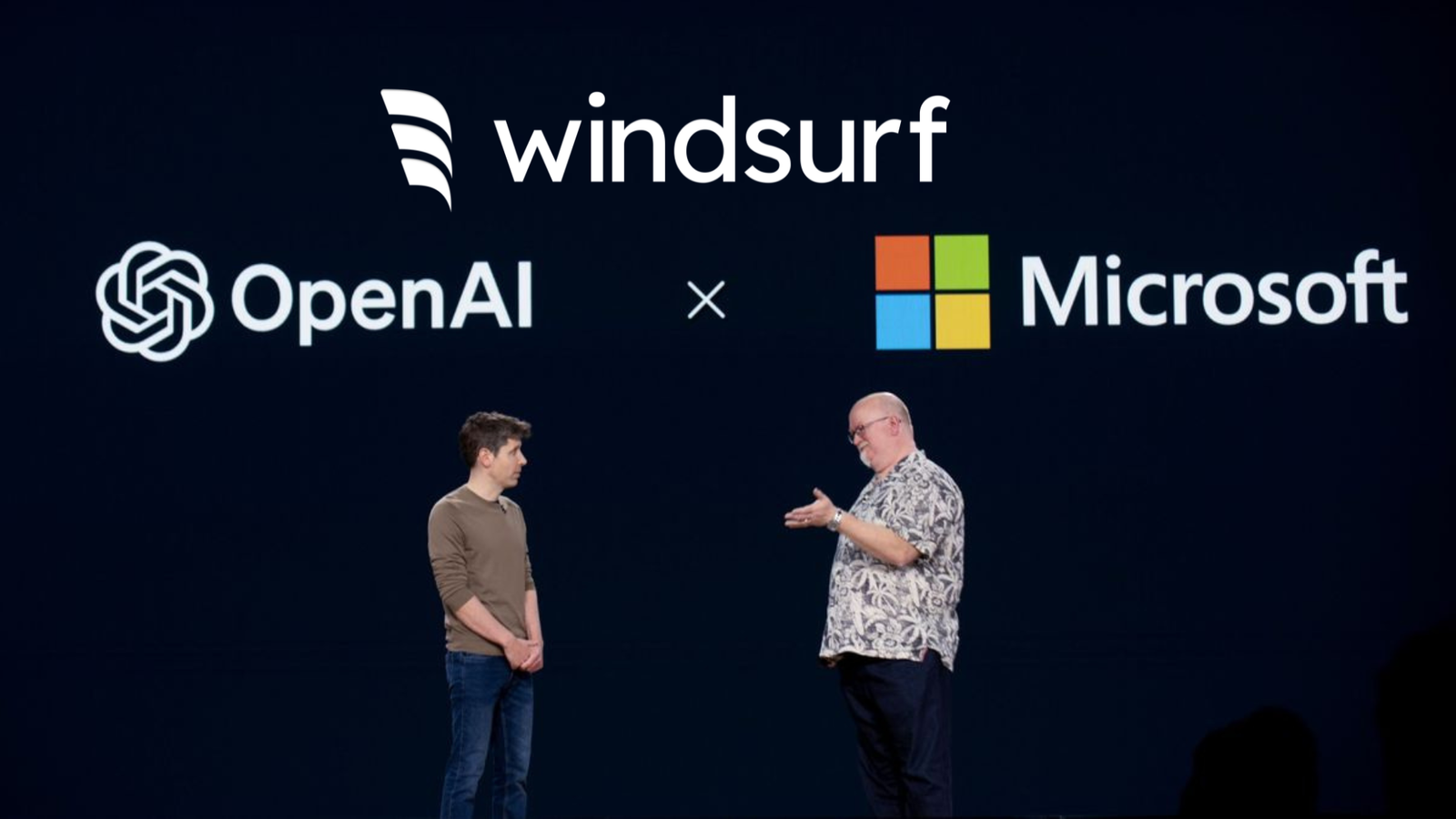OpenAI’s ambitious $3 billion attempt to acquire AI coding startup Windsurf has officially collapsed as of July 11, derailed by tensions with Microsoft over intellectual property access and the expiry of a key exclusivity period.
But the story doesn’t end there. Now that OpenAI is out of the picture, Google has swiftly stepped in with a strategic licensing deal, and now, Cognition has entered the fray with a plan to acquire Windsurf outright.
Ronin Legal explores the details of the proposed $3 billion deal with OpenAI, Google’s strategic swoop in to secure this deal through an ‘acquihire’ approach, and Cognition’s eventual acquisition of Windsurf.
What is Windsurf?
Windsurf (formerly known as Exafunction) has made waves in the tech world for what OpenAI once described as “vibe coding;” an intuitive, AI-assisted approach to software development where engineers describe what they want in natural language, and AI generates, refines, and debugs the code.
The startup’s flagship product, Cascade, is a powerful AI coding agent that goes far beyond autocomplete. It can intelligently generate code, edit across multiple files, run terminal commands, fix bugs, and collaborate with developers directly within their integrated development environments (IDEs). Think of it as a smart coding partner that understands developer intent and navigates complex codebases contextually.
Why OpenAI Wanted Windsurf
For OpenAI, acquiring Windsurf seemed to be a strategic play in extending its reach beyond model development into real-world software engineering workflows. Known for building powerful models like ChatGPT, OpenAI was ready to expand its influence deeper into the software development lifecycle.
The deal, rumoured at around $3 billion, would have been OpenAI’s biggest acquisition to date. Windsurf, at the time, was one of the fastest-growing startups in the field, with $82 million in annual recurring revenue (ARR), and enterprise ARR doubling every quarter. It also served over 350 enterprise clients, making it a hot property for anyone eyeing the future of AI-assisted software development.
What Went Wrong?
Despite an executed letter of intent, investor payout agreements, and multiple rounds of negotiation, the deal ultimately fell apart. The main reason for this was complications involving Microsoft in OpenAI’s operations.
As OpenAI’s key investor and partner, Microsoft holds contractual rights to access any intellectual property OpenAI acquires until 2030. Windsurf, however, refused to extend those rights to Microsoft.
For Windsurf, granting Microsoft access to its IP was seen as a direct threat to its independence and competitive edge. The startup viewed this condition as non-negotiable, unwilling to risk having its core proprietary technology exposed to a dominant industry player that already owns GitHub Copilot, one of Windsurf’s most direct competitors. This deadlock proved to be the final straw in mid-2025.
Once the contractual exclusivity period during which Windsurf was bound to negotiate only with OpenAI expired in July, Google stepped in with its own offer.
Google’s Strategic Acquihire
Google’s DeepMind quickly reached an agreement to acquihire Windsurf’s CEO Varun Mohan, co-founder Douglas Chen, and a select group of top engineers. It also secured a non-exclusive licensing deal for some of Windsurf’s proprietary tech for $2.4 billion.
Unlike OpenAI’s full acquisition attempt, Google didn’t seek to buy the company outright. Instead, it focused on acquiring talent and access (what is now categorised as an ‘acquihire’), thereby strategically avoiding the kind of regulatory scrutiny that large M&A deals typically attract.
Google has, on multiple occasions, got caught in the crossfire between its push for growth in the AI market and regulatory scrutiny, often facing allegations of harming competition due to its market dominance in various countries across the world, for instance.
Through this deal, a pattern seems to be emerging: Google is hedging its bets by acquiring brains and tools, not corporate control. Back in 2024, it struck a similar deal with Character.AI, hiring its founders and licensing its language model tech without taking over the company.
Enter Cognition
After Google’s acquihire, Windsurf was expected to remain an autonomous AI-coding start-up while its founders, who have made their move to Google, focus on agentic coding at Google DeepMind with a Gemini-centric approach.
But before the dust could settle, Cognition, the company behind AI coding agent Devin, stepped in with a decisive move – announcing it would acquire Windsurf outright. This wild scramble to secure Windsurf speaks volumes about a growing industry trend; the rapid adoption of AI-powered IDEs.
Through this deal, Cognition will take over Windsurf’s remaining team (those not hired by Google), along with its full suite of intellectual property, products, brand, enterprise contracts, and the powerful Windsurf IDE. The agreement also includes access to the latest Claude models, a fast-growing enterprise business, and a large, loyal user base of daily active developers.
In a strong employee-first move, Cognition also announced that all vesting cliffs will be waived, allowing Windsurf employees to immediately benefit from the acquisition.
Conclusion
The unravelling of the OpenAI-Windsurf deal offers a glimpse into the future of AI, where the focus is shifting from standalone models to agentic platforms that act as intelligent collaborators. It also highlights the rising importance of navigating investor dynamics, protecting IP, and securing talent to own not just the tools, but the ecosystems that drive AI innovation. For companies navigating similar high-stakes negotiations, involving the best artificial intelligence lawyer is now more crucial than ever to address complex legal frameworks tied to IP, licensing, and M&A.
Authors: Shantanu Mukherjee, Varun Alase, Akshara Nair














































